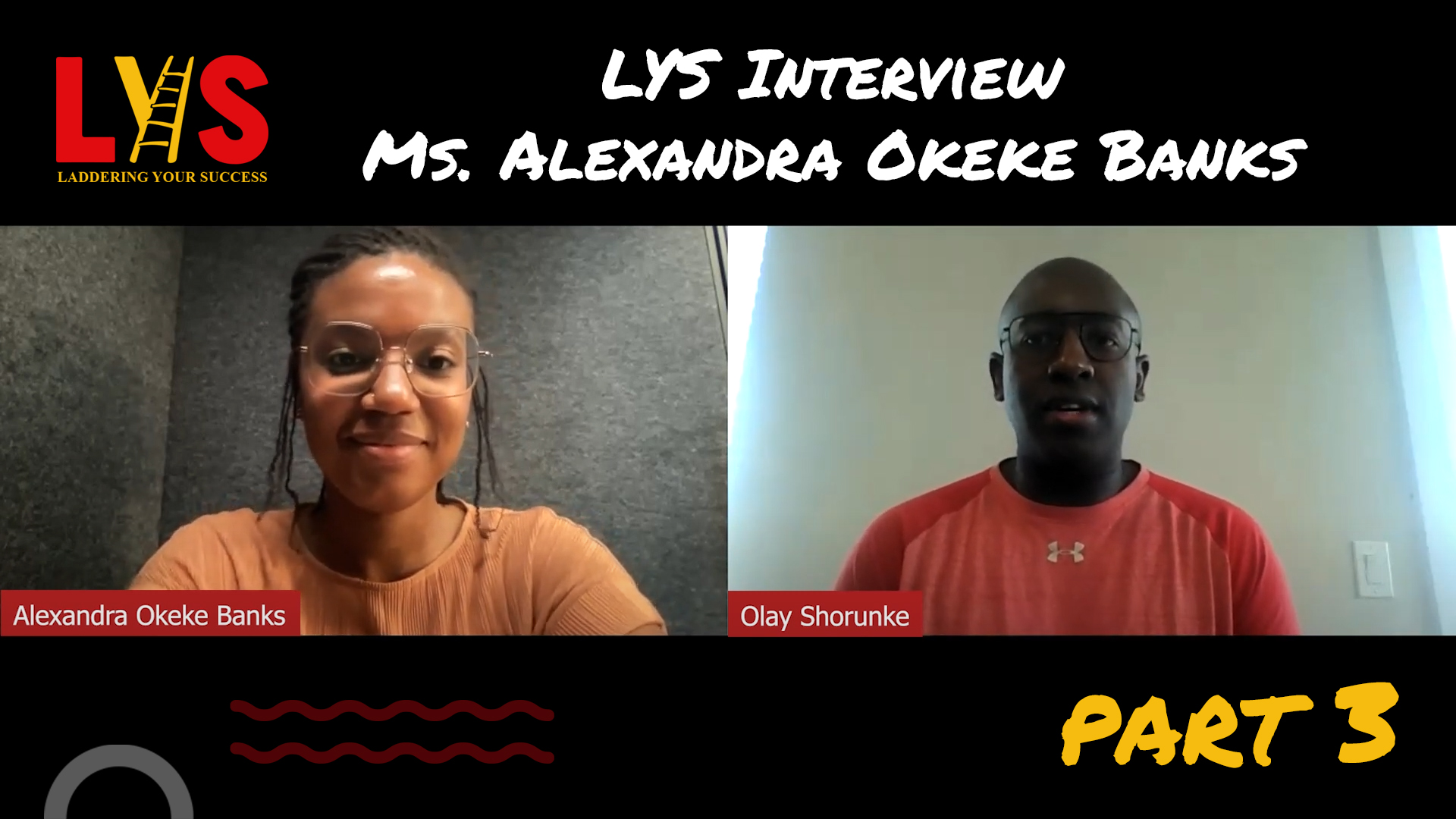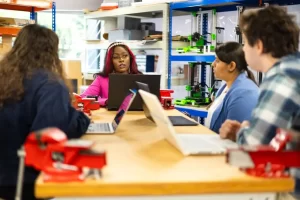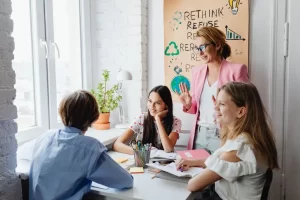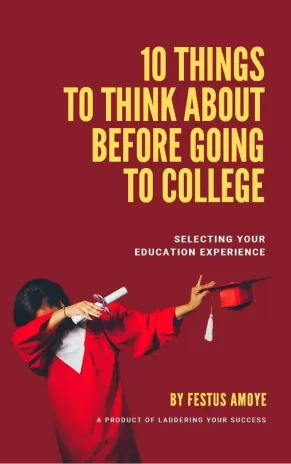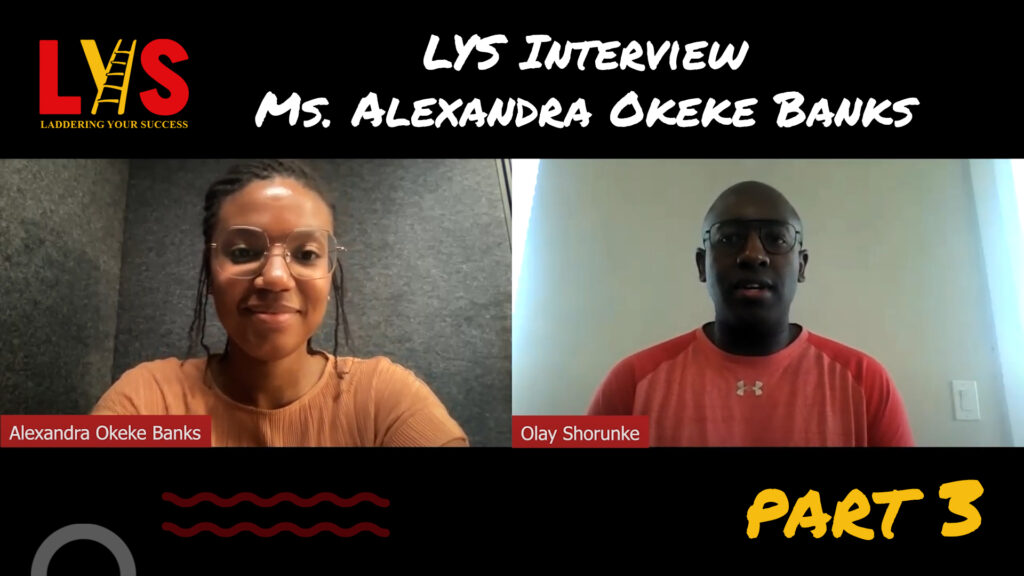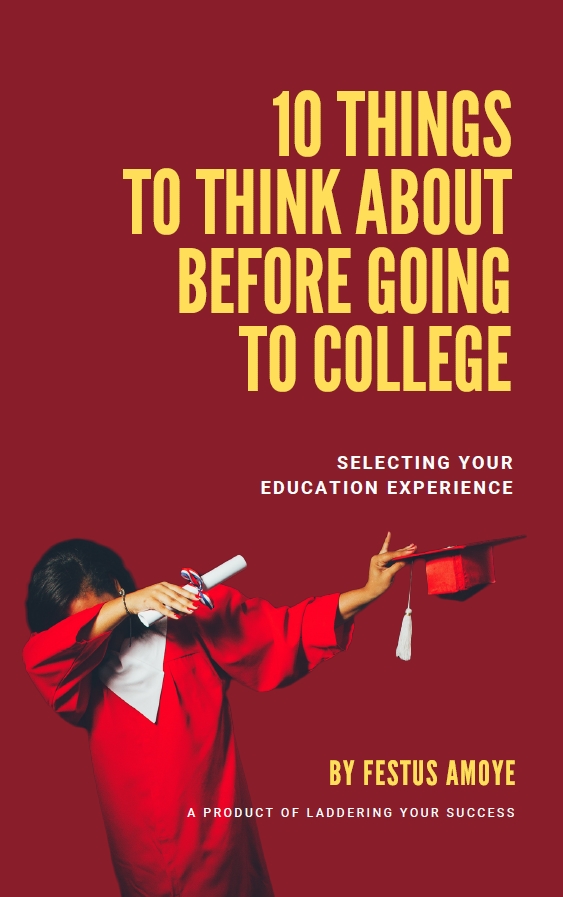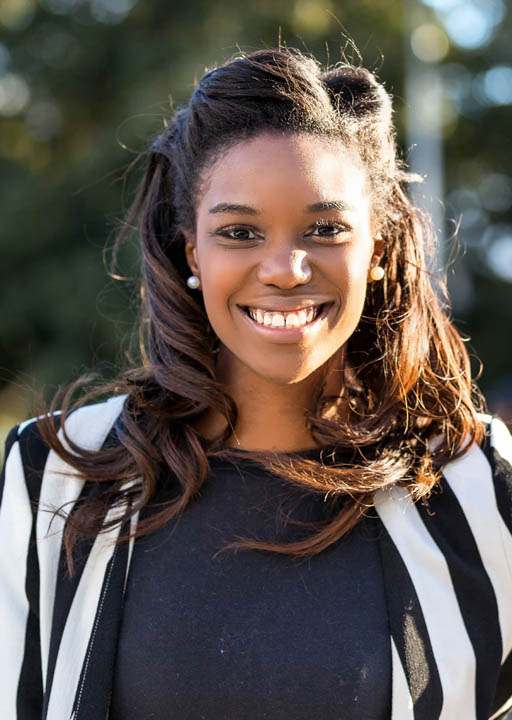Hey there, passionate educator! Mental Health has been a big issue over the last 2-3 years. So we figured why not sit down with a school counselor and ask a few questions. Laddering Your Success’ own Olayinka Shorunke had an opportunity to interview the lovely Mrs. Alexandra Okeke Banks, a licensed school counselor! Always remember, if you want to incorporate SEL, Character, and skills into your lessons, you can use the LYS classroom app. Here is the last part of the interview conducted by Laddering Your Success with Mrs. Alexandra Okeke Banks! Follow the transcript below for the interview:
Olay:
So we talked about the stats. We talked about the data, a lot of like what quantitative things that you can gather. Let’s try to come up with some solutions, right? I mean, of course we can’t fix all the problems, but if we can do a little bit every day, I like to say we can, we can get somewhere over time.
So what are some tools or exercises, uh, students can use to help either organize their thoughts to strengthen that connection between teacher and student, and to get them to open up? What are some things that we can do?
I would say, well, I would say like each, each person in the student’s life has some type of role and can take some type of action. So I would say as far as teachers, I think teachers can just take those, honestly, 30 seconds to one-minute conversations to check in with their students and see how they’re doing and what I mean by that is like, I know you, you’ve probably done it before, where you’re standing, you know, when your kids come into your class, you’re standing outside to greet them. That’s an awesome thing to do. And you’re kind of checking in with them real quick, “Hey, good morning. How you doing?” Hey, and some of them you’ll notice. Yeah. You know, as they walk by you and sometimes it’s fantastic just to be like, “Okay, hey everybody, how are you doing?
“Hey, Hey,” you know, “Johnny, can you come meet me outside real quick?” And just have that one-minute conversation, like, “Hey, what’s going on? You look different, you know, what’s going on?”
“Oh, uh, nothing.”
“Are you having a bad day?”
“Uh, kind of, do you wanna talk about it?”
“No.”
“Okay. That’s fine. Is there anything that I can do for you today?”
“Uh, no.”
“Okay,” And then just, you know, take the time to be extra gentle, you know, and then sometimes you’ll have kids who are like, “Yes. Oh my gosh, this happened to me. And my mom is trying to be crazy,” You know, and they’ll tell you the whole story. And so, um, and then you’re like, “Okay, well, what do you want? What can I do for you today?”
And I, and you know, I know a lot of teachers have their own beliefs on what’s appropriate and what’s not, I’m a hugger.
So I will tell my kids, “Do you need a hug?” And I’ll give them a nice church side hug, you know, but a lot of the kids, they don’t get physical affection at home either, you know? And so some of my kids will be like, “Yeah, I need a hug,” you know, and I’ll just give them a nice hug, or I’ll just rub them on the back or pat them on the shoulder. And of course, I ask, you know, for consent and things like that.
But yeah, those, those 30 minute conversations are crucial just for checking in with the kid. And if you feel like, okay, this is a lot more than we can talk about right now. “Hey, do you wanna go to the counselor? Do you wanna come visit me during lunch?” You know, whatever, because sometimes the kids feel more comfortable with you than they do with the counselor or the vice principal or what have you or the social worker, you know?
And so yeah, I would say, “Hey, if you wanna hang out with me during lunch, you know, you can,” I know teachers are like, lunch is my time. You know, I don’t wanna see any kids. I don’t know. I don’t want if there’s kids around, you know, but, um, but honestly, those are the things that really make a difference in the classroom. Because I promise you, having those types of conversations with the most difficult kids, you know, I would have other teachers, “Hey, you have Johnny in your class. He never does work in my class. How does he do in your class?”
“Oh yeah, he’s great. He’s getting a B.”
“How do you get him to work?”
You know? And so I think, you know, that type of communication is important. Communicating that you care. I always tell my kids, you know, stay safe, be safe, do your best, and wear your seat belts.
Like I would say things like that. I really care about you. I really want you to do well in this class. I know you can do this. Those things are just are, are fantastic to do. And then just understanding that, you know, kids are not bad. You know, there’s no bad kids. There are just hurt kids or confused kids. And I think often times teachers, you know, they get jaded and they want to, to treat students as adults. Well, I told this student three times that blah, blah, blah, blah, blah. And they’re not. I’m like, listen, they’re 13. You know, and I’ll tell some of my colleagues, like he’s a 13-year-old boy, he’s dumb. He’s gonna do dumb things. You know, we just gotta give ’em some grace and, you know, communicate to them. Yes, we make mistakes.
Yes. I still support you, but let’s create a plan on how to do things differently. And so yeah, I think sometimes teachers can get in the habit of writing kids off instead of taking the time to build relationships and change behavior. So that, that would be on the teachers’ end. As far as like counselors and staff, I think it’s super important for them to create a space for kids to talk and be open. And so one of the things that I really liked about my position, um, was that we could do group groups, counseling groups and they, or SEL groups. And they didn’t have to be super intense. It could be something simple as, um, let’s talk about social skills. They don’t even need to know what the topic is, you know, honestly, but we can talk about how do you apologize?
What does it mean to be a good friend? You know, how, how do you, um, organize yourself? You know, how do you, what do you do when you’re upset at someone? You know, how do you react or how do, how can you respond? And so just having these little activities where the kids are able to share their opinions and even correct themselves, cuz quite honestly, student to student correction is gonna be more impactful for them than the teacher, to student or admin to student. And then that way they also get to practice with their peers as well. And so I think groups are fantastic.
I had one group when I was working in a high school, and it started off as just a small girls’ group. I had a freshman to two seniors, and we were just talking about self-esteem, body image and it went from like four to five students to, by the end of the year, I had to like open up my classroom and take two large tables out. I had 15 girls, and they were like, “Miss, are we having girls group on Tuesday at, you know, 12?”
“Yes, we are.”
“Awesome. My friend wants to join,” you know, this, and that. And we would just talk about real issues and just create an environment where the girls could be honest and open. And so I think that’s really key as well. And then, um, you know, parent contact, sometimes you gotta go above and beyond a phone call and an email. There were so many house visits, home visits that I did this year, that was just, it was needed. You know? Sometimes parents can think that schools especially, I will say it happens a lot with my minority parents. You know, where school, someone from school calls about their kid and tells ’em this is this and this is going wrong. And they are like, well, you know, you’re just being discriminating against my child, or you don’t really care about them, or you know, you just want them outta your classroom.
And so, you know, I, I had one student, um, he was a young African American kiddo. He was eight years old ADHD, and just severely aggressive. And um, dad didn’t want him on medication because he was having so much issues with medication. Um, but the school was like, we’re not, we’re not gonna do this anymore. And so I called dad, and he was like, yeah, you know, blah, blah, blah, blah, blah. And, and then I called him again, he didn’t answer and called him again. And then I showed up at the house, and I’m, I’m like here, I’m here to help your kiddo, but we need to have a real conversation about what’s going on. And so after that, there was just consistent communication between him and I. And so I think taking that extra step to, to reach out to families where, you know, like this kiddo is on a path of dropping out, you know, an eight-year old, who’s not at grade level bar, he can’t read, you know, he has ADHD.
I mean, and he would tell me in my counseling sessions, I’m just a bad kid. No, you’re not. You know? And so I think, yeah, just, just taking those extra steps for sure. And then, uh, I would say for, for parents, uh, just informing yourself on what is available in your community. Cuz there are a lot of communities, there are a lot of school programs that provide free counseling to students. And that’s what I did this year.
I work for communities and schools, San Antonio. They’re a fantastic nonprofit, but I’m literally visiting different schools to provide clinical counseling to students for free. And they don’t. The parents don’t have to drop them off. They don’t have to take ’em anywhere. I go to the school and see them. And so just trying to be aware of like what services are available to me in my community.
There’s something. There’s always something. And so just really trying to educate yourself and be aware of what you can do. And then also being honest with yourself when you need help and not waiting till it’s bad, bad to get help. Um, you know, I’ve had parents who are like getting into fistfights with their middle schoolers, and I’m like, you should have been here a long time ago, you know? And so yeah, I think even if you’re like, I just need a little bit of help. That’s fine. You know, take care of it as early on as possible. Don’t wait for it to be out of your hands to seek help. So, so yeah, I hope that answered your question
Olay:
Yes, you did perfectly. Thank you so much for that. Wonderful, wonderful. Well, that’s our time. That is our time. I wanna say a big thanks to you, Miss Alexandra Banks.
Thank you so much for agreeing to come and share your wonderful knowledge with us today. Um, I really, really appreciate it. I think we got some things that are gonna help parents, teachers, and students, um, this year, uh, to make it really successful. I’m so happy we did this. Is there a website or an email, um, for folks to get in contact with you?
Alexandra:
Yes. So, it’s Banks, LPC. LPC as in licensed practice professional counselor. So bankslpc@gmail.com.
Olay:
All right. Wonderful. I’ll make sure that when we post that’ll be up there so they can see it. Thank you. Thanks. Oh, thank you. Thank you. Thank you to our family for watching this video and as always, let’s make sure we are always taking a step to ladder your success. Take care now. Bye.
Thanks for following along. If you enjoyed this interview, check out our other articles, please click here.
We at LYS also know the importance of education, and we aim to help you out in making sure that your students receive all the help they need to ladder their success. If you are a parent, an educator, or an administrator, the LYS Classroom App is an excellent tool for supplemental lesson planning. Do you want to try it for free? Click here!

